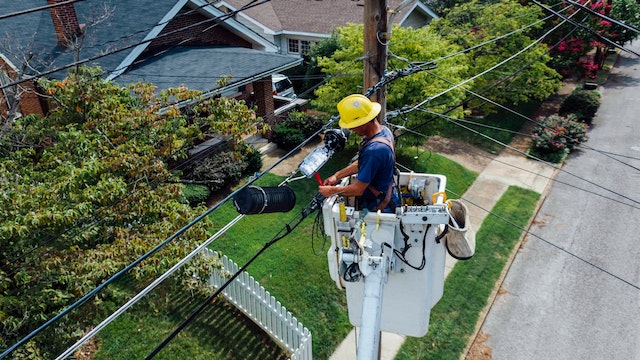Electricity is the lifeblood of modern businesses. From powering machinery to lighting up workspaces, commercial electrical installation are the backbone of a successful enterprise. Whether you’re setting up a new office, renovating an existing space, or simply upgrading your electrical system, a well-executed commercial electrical installation is crucial. In this comprehensive guide, we’ll walk you through the key considerations and best practices for a successful and safe electrical installation in a commercial setting.
- Planning is Key
Before you jump into the physical installation, careful planning is essential. Here’s what you need to consider:
a. Electrical Load Calculation: Determine the electrical load your business requires. This includes lighting, HVAC systems, machinery, computers, and other electrical devices. An accurate load calculation is crucial for selecting the right size of electrical service.
b. Permits and Regulations: Check local building codes, zoning laws, and safety regulations. You might need permits for certain electrical work, so be sure to comply with all legal requirements.
c. Safety First: Assess potential electrical hazards in your workspace and ensure that your installation adheres to safety standards. Safety should always be a top priority.
- Choose the Right Professionals
Hiring a qualified electrical contractor is the most important step in the commercial electrical installation process. Experienced professionals will ensure your installation is safe, up to code, and efficient. They should be licensed and bonded, and have a good track record in commercial installations. They will also assist in creating a comprehensive electrical plan, including blueprints, circuit diagrams, and more.
- Electrical Panel and Service Size
Selecting the appropriate electrical panel and service size is critical. An undersized panel can lead to frequent tripping and overloaded circuits. Work with your electrical contractor to determine the right panel size based on your electrical load requirements.
- Wiring and Conduit
Proper wiring and conduit installation are essential for safety and functionality. High-quality, durable wiring materials should be used to prevent future issues. Different areas may require different types of conduit, such as PVC or metal, so consult with your electrical professional to make the right choice.
- Lighting Design
A well-thought-out lighting design can improve productivity and create a pleasant work environment. Consider energy-efficient lighting options, such as LED fixtures, to reduce long-term operating costs. Lighting controls, such as dimmers and sensors, can further enhance energy efficiency.
- Emergency Systems
Commercial spaces require emergency power systems, such as backup generators or uninterruptible power supplies (UPS). These systems ensure that critical equipment continues to operate during power outages, maintaining business continuity.
- Network and Communication Infrastructure
In today’s digital age, a reliable network and communication infrastructure are crucial. Ensure that your commercial electrical installation includes data cabling, phone lines, and other communication systems to support your business operations.
- Regular Maintenance
Once your electrical installation is complete, regular maintenance is essential. Inspections and preventative maintenance can help identify issues before they become major problems, reducing downtime and safety risks.




